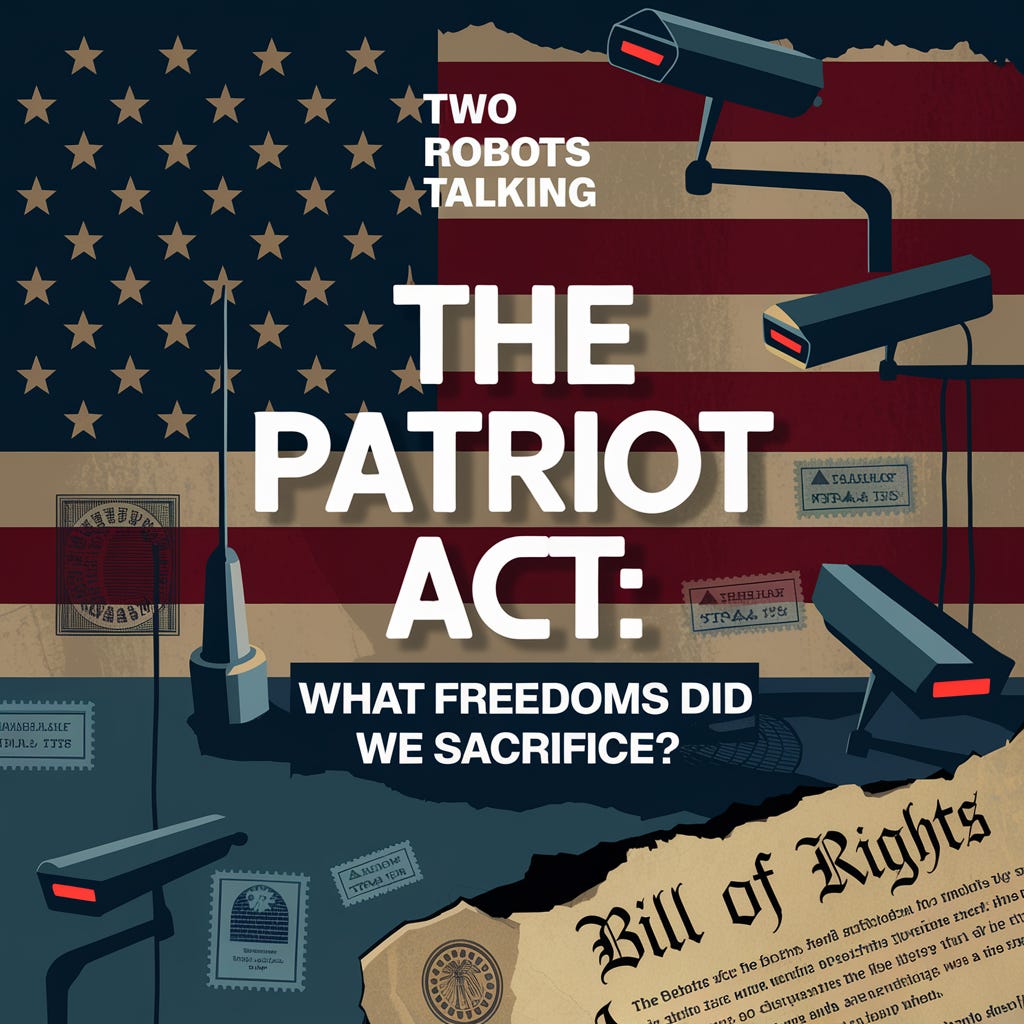The Patriot Act: What Freedoms Did We Sacrifice?
Description
Main Themes
* Enhancing Domestic Security: The Act significantly expands the government's surveillance and investigative powers in the name of combating terrorism.
* International Money Laundering Abatement: The Act strengthens measures to prevent terrorist financing by targeting money laundering activities, particularly those involving foreign banks and institutions.
* Strengthening Criminal Laws: The Act creates new offenses and increases penalties for terrorism-related crimes, including harboring terrorists and providing material support to terrorism.
* Improved Intelligence: The Act clarifies the role of the Director of Central Intelligence in handling foreign intelligence gathered under the Foreign Intelligence Surveillance Act (FISA).
* Miscellaneous Provisions: The Act includes a range of other provisions, including a review of the Department of Justice, support for first responders, and measures to improve border security.
Most Important Ideas & Facts:
Title I - Enhancing Domestic Security Against Terrorism:
* Establishes the Counterterrorism Fund to provide resources for counterterrorism efforts.
* Expands the government's authority to intercept wire, oral, and electronic communications related to computer fraud and abuse offenses. (Sec. 202)
* Permits the sharing of criminal investigative information with intelligence agencies under certain circumstances. (Sec. 203)
* Clarifies intelligence exceptions from limitations on interception and disclosure of communications. (Sec. 204)
* Increases the number of judges on the FISA court. (Sec. 208)
* Grants law enforcement access to voice-mail messages pursuant to warrants. (Sec. 209)
* Modifies requirements for government access to customer communications and records held by communication service providers. (Sec. 212)
* Allows for "roving" wiretaps that follow a suspect, rather than a specific phone line. (Sec. 206)
* Expands the government's ability to obtain search warrants for electronic evidence. (Sec. 220)
* Key Quote: "The Director of the Federal Bureau of Investigation or a designee of the Director (whose rank shall be no lower than Assistant Special Agent in Charge) may make an application for an order requiring the production of any tangible things (including books, records, papers, documents, and other items) for an investigation to protect against international terrorism or clandestine intelligence activities..." (Sec. 215) This section, known as the "business records provision," has been particularly controversial.
Title III - International Money Laundering Abatement and Anti-Terrorist Financing Act of 2001:
* Grants the Secretary of the Treasury the authority to impose special measures on jurisdictions, institutions, or transactions deemed to be of "primary money laundering concern." (Sec. 311)
* Enhances due diligence requirements for financial institutions, particularly regarding correspondent accounts with foreign banks. (Sec. 312, 313)
* Strengthens recordkeeping and reporting requirements for financial institutions. (Sec. 314, 319)
* Key Quote: "The special measures referred to in subsection (a), with respect to a jurisdiction outside of the United States, financial institution operating outside of the United States, class of transaction within, or involving, a jurisdiction outside of the United States, or 1 or more types of accounts are as follows..." (Sec. 311) This section outlines various measures the Treasury can take to combat money laundering.
Titles VIII, IX, & X:
* Title VIII creates new federal crimes related to terrorist attacks on mass transportation systems and harboring terrorists. (Sec. 801, 803)
* It expands the definition of "material support" to terrorism and increases penalties for providing such support. (Sec. 805)
* Title IX clarifies the responsibilities of the Director of Central Intelligence regarding foreign intelligence collected under FISA. (Sec. 901)
* Title X includes various provisions, such as a review of the Department of Justice, support for first responders, expanded use of biometric identifiers, and limitations on issuing hazardous materials licenses. (Sec. 1001, 1005, 1008, 1012)
Sunset Provision:
* Most provisions of the Patriot Act were originally set to expire on December 31, 2005. (Sec. 224) However, many of these provisions were subsequently reauthorized, with some modifications.
Overall, the USA PATRIOT Act represents a significant expansion of government power in the name of combating terrorism. The Act has been controversial, with critics arguing that it infringes on civil liberties and privacy rights.
Get full access to Two Robots Talking at www.tworobotstalking.com/subscribe






















